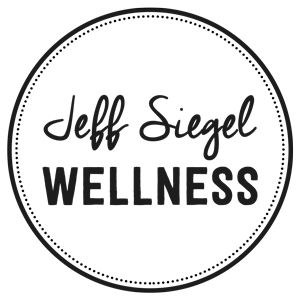Solitary confinement: One of the worst possible experiences a human can endure. Imagine being completely isolated and alone. Suffering.
What would you most long for?
- Someone to talk with?
- Someone to listen to you talk?
- A chance to simply feel another’s presence, heart, and perspective?
Here is an important truth: Life desires other life.
We all deeply want to be surrounded by and connected to the living. In fact, life itself evolves from transcending and including more and more forms of life. Multi-celled organisms are built on single cells. Life as we know it means being a whole AND a part of a larger whole.
This is why being cut-off from the larger whole hurts so much–It undermines life. The extreme example of those held in solitary confinement shows how this debilitating experience leads to psychosis, dissociation, hallucinations, and a host of other physical and mental ailments. But in more everday situations we are destroying the work of evolution to integrate and include:
Without interaction with living environments, the mind decays.
Without movement and nourishment from other life, the body decays.
Without connection and care from other life, the heart decays.
Yet we live most of our lives forgetful of this connection to the larger whole. I’m not referring to conscious isolation. I’m referring to the unconscious perspective of seeing the world only in reference to “me, myself, and I.” This habit of mind makes us care only about ourselves (an extremely important and necessary endeavor) and forgets that we are intertwined with, beholden to, and inseparable from many larger wholes.
Here’s what I wish everyone knew about being isolated from the whole:
Home:
At home we cloister ourself in drywall boxes, shut out the world, and surround ourselves with screens. Typically, the richer we are, the more isolated our home becomes. We build fences, hedges, and guards to surround our property and push-away the rest of the world. We don’t want to be reminded of the suffering and struggle of others so we keep it a bay.
Many of us living in cities don’t even know who we live next to, on top of, or below. Most of the days we walk around completely cut-off from others. We don’t know who we are walking by, who we are sharing an elevator with, or who we are sitting next to in the cafe. We are surrounded by strangers and this seems normal. We are used to disconnection and anonymity. Sure, we are surrounded by life, but not connected to it.
Even if we do know people near our homes, we probably have more conversation via text or email than we do face-to-face. When we live without a clear sense of how we are connected to the larger whole of those living around us, we live in isolation, not in community. We don’t take responsibility for how we are living because we think no one notices, no one cares. The resulting tragedy of the commons leads us down a path of deterioration.
Movement:
Our movements are isolated, cut-off from the natural environments Homo sapiens evolved to move through daily. We spend our day sitting. Then we drive ourselves to a gym, hop on a machine, plug in our headphones, and tick away the minutes while watching the news. Cut-off from both our bodies and the people around us, the repetitive machine-based movement only reinforces isolation. Isolated muscles and isolated movements deny the human body of three-dimensional physical expression.
Shopping:
Our shopping is isolated, cut-off from the means of growth and production. We have very little idea of where most of our products come from. We just expect it all to be neatly packaged, folded, and ready for use.
If we care enough to look on the label, all we see is “Made in ___”. What does this tell us about the people, resources, effort, and ethics that went into producing this item?
The entire way we consume goods is isolated on the consumption piece, relegating the other parts of the materials economy to the background. The unwholesome externalities of extraction and disposal are hidden from view. Perhaps because if we truly recognized the harm done to the larger whole, the people and environments of Earth, we would start to feel responsible to change our behavior.
Food:
Our food is grown in isolation. Mono-crops and factory farms produce millions of the same plant or animal. There is no biodiversity. Removing plants and animals from their natural home, not only make them less nutritious, but it deteriorates the environment. Pesticides, herbicides, fungicides, and antibiotics ward off diseases resulting from isolation. The soil becomes depleted to the point where it’s unable to sustain life. Food technology tries to add back some of what was lost via isolated vitamins. Sorry, but adding a vitamin, probiotic, or antioxidant to an unhealthy, fake food doesn’t make it wholesome.
Eating:
In our eating we are isolated. It the most literal sense, how often do you eat alone, either multitasking or sitting in front of a screen? How often do you open your delivery app and order takeout to satisfy your need for convenient, comfortable living?
Just like other forms of material consumption, eating has been gloriously separated from the procuring, cleaning, and cooking of food. All we see is the flavor and instant gratification. By ignoring the miraculous and monumental ways eating connects us to other life, we are prone to overeat. Our view shrinks smaller our bodies grow larger.
Hearts:
In our hearts we are isolated. How many heartfelt conversations do we have each day? How many loving connections do we deliberately cultivate?
Not only do most interactions remain superficial, failing to provide the connection our hearts long for, but society tells us that we can only love certain things or certain people.
It is appropriate to love our country, but how about loving someone else’s nation?
It is appropriate to show love for our pets, but how about loving that homeless person you walked by.
Our hearts are quarantined by social scripts and cut-off from loving generously. Worst of all is when our hearts feel unworthy of love because of the color of our skin, the name of our religion, the preference of our sexuality, or other identities we may hold.
Hearts are the organ of connection and yet we isolate them out of fear, ignorance, and obedience to social powers. A heart forced to live in isolation becomes bitter, cold, and withers.
Thoughts:
In our thoughts we are isolated. How often do we deliberately seek out news contrary to our beliefs?
We live in echo chambers, reverberating with “yes-men” who feed into our biases. Our diet of thoughts remains anemic and limited. We think the same thoughts over and over, pass the same judgments, and worry about the same fears. Our thoughts remain cut-off from the wide array of ideas and perspective that exist in the world.
Our thoughts also remain cut-off from the very vehicle in which they arise–our bodies. How often do we ask for the wisdom of our bodies to guide us? Most of us were not taught how to integrate our thinking with our physical and emotional bodies.
What is the effect of all this isolation?
Disease. Poor health. Unhappiness. Environmental degradation. Social disintegration.
It is not our fault we are so isolated. Many of these structures, systems, and beliefs were handed to us when we arrived on this planet. Hence, we don’t often stop to question them and ask if there’s a better way.
This is the truth of now, and it is our responsibility to do something about it. We have the opportunity to act independently and make decisions without defaulting to the status quo. We have the knowledge of what healthy, happy, and whole communities and ecosystems look like. We know that if life is not actively integrating, it is disintegrating, decaying, becoming unconscious, lifeless.
Our choice is either to remain complicit in this process of decay, or disrupt isolation through conscious connection, integration, and the conservation and celebration of diversity.
Honor the Whole in Which You Are A Part
If you’re feeling dissatisfied with any of the ways isolation is hurting you, hurting others, or hurting the planet, please join me to take action.
This post may seem depressing or cynical about the state of the world. To a certain extent, I want you to feel a little heartbreak. Then I want you to follow that heartbreak wherever it leads you. It will point to a whole — community, environment, government, culture, technology, etc — in which you feel most compelled to take action. That is where you can start.
It’s easy to feel overwhelmed by the enormity of all it all. This isn’t about saving anyone. It’s simply about reconnecting with the greater wholes in which you are already a part of.
Do it for yourself and for the world. Not because anyone asked, but because it’s what evolution demands of life.
- Talk to people you share space with.
- Pick up a piece of trash on the street.
- Look at people in the eye.
- Ask questions about where products and your food comes from.
- Cook and share a meal with others.
- Become an ally of someone or some group that typically doesn’t receive your attention.
- Open your home neighbors.
- Start an affinity group.
- Increase the biodiversity of your thoughts. Seek people, news and ideas that are different.
- Move your body in a new way. Dance. Wiggle. Jiggle.
Please post your ideas for acting in service of connecting, including, integrating in the comments below.
Consciously disrupting isolation in honor of the whole,
~ Jeffrey
I’m Jeff Siegel, a wellness coach and mindfulness teacher, helping people upgrade their habits and improve their health. For free bi-monthly wisdom on how to eat, move, and be healthier, sign-up for my newsletter. If you’d like to explore working together, you can schedule a private 30-min consultation call with me.




This is a GREAT article, and so very true! I always open the door for people and offer my assistance if someone seems like they need some, even in NYC. People are always surprised at first but then so grateful. The human condition is to connect!